generation ship
description: interstellar spacecraft able to accommodate multiple generations of passengers
16 results
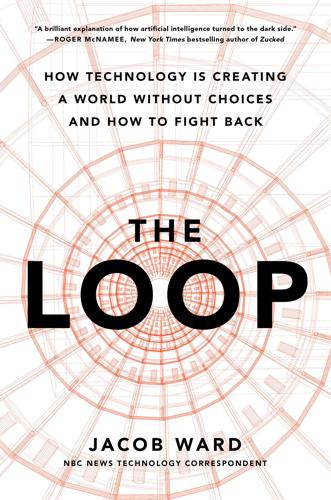
The Loop: How Technology Is Creating a World Without Choices and How to Fight Back
by
Jacob Ward
Published 25 Jan 2022
Will the final generation be able to function well enough to even set the ancient ship, rebuilt in flight over and over, down on the surface of humanity’s new home? How do we possibly plan for this sort of time scale? The idea of a generation ship felt like a pointless fantasy when I first encountered it. But as I’ve spent the last few years speaking with technologists, academics, and policy makers about the hidden dangers of building systems that could reprogram our behavior now and for generations to come, I realized that the generation ship is real. We’re on board it right now. On this planet, our own generation ship, we were once passengers. But now, without any training, we’re at the helm. We have built lives for ourselves on this planet that extend far beyond our natural place in this world.
…
Every human accomplishment you’ve ever read about—language, religion, the Egyptian, Greek, and Roman empires—has happened since then. We’ve only been “modern humans” for that long. And that means that a generation ship isn’t just about finding and training the right one hundred people to seed a thousand-generation journey. It’s about literally bottling the equivalent of our entire history as a species for a repeat performance in captivity. A generation ship is every sociological and psychological challenge of modern life squashed into a microcosmic tube of survival and amplified—generation after generation. Will the final generation be able to function well enough to even set the ancient ship, rebuilt in flight over and over, down on the surface of humanity’s new home?
…
. | Decision making. Classification: LCC Q335 .W358 2022 | DDC 006.3—dc23 LC record available at https://lccn.loc.gov/2021034378 ISBNs: 9780316487207 (hardcover), 9780316487221 (ebook) E3-20211201-JV-NF-ORI CONTENTS Cover Title Page Copyright Dedication Epigraph INTRODUCTION The Generation Ship CHAPTER 1 The Reality Gap CHAPTER 2 Illusions CHAPTER 3 Two Systems CHAPTER 4 Clusters CHAPTER 5 Guidance Systems CHAPTER 6 Life on the Rails CHAPTER 7 What AI Isn’t CHAPTER 8 Collapsing Spiral CHAPTER 9 The Loop CHAPTER 10 Mission Critical CHAPTER 11 Weak Perfection CHAPTER 12 Higher Math Acknowledgments Discover More Notes For Julie, who saved me For Josephine and Juniper, who will save us all Explore book giveaways, sneak peeks, deals, and more.
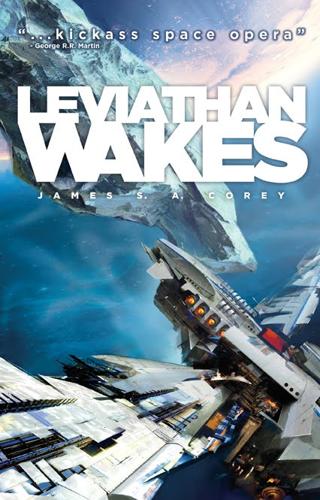
Leviathan Wakes
by
James S. A. Corey
Published 14 Jun 2011
Just under twenty million people lived on the moons of Saturn now. The Canterbury had hauled nearly a million of their ancestors there. Forty-five million on the moons of Jupiter. One moon of Uranus sported five thousand, the farthest outpost of human civilization, at least until the Mormons finished their generation ship and headed for the stars and freedom from procreation restrictions. And then there was the Belt. If you asked OPA recruiters when they were drunk and feeling expansive, they might say there were a hundred million in the Belt. Ask an inner planet census taker, it was nearer to fifty million.
…
Holden sat in a chair that was just a little lower than Fred’s, and looked at the mounds of file folders and papers covering every flat surface. Fred had sent for him and then spent the first ten minutes after he’d arrived speaking on the phone. Whatever he was talking about, it sounded technical. Holden assumed it was related to the giant generation ship outside. It didn’t bother him to be ignored for a few minutes, since the wall behind Fred was entirely covered by a bleedingly high-definition screen pretending to be a window. It was showing a spectacular view of the Nauvoo moving past as the station spun. Fred spoiled the scene by putting the phone down.
…
“Maybe. Amos could probably blast it open with some of the explosives we found in that big box of weapons.” Holden laughed. “Well,” he said. “Since it’s probably full of little vials of nasty alien viruses, I’m going to nix the blasting option.” Naomi shut down the comm log and pulled up a general ship’s systems menu. “I can look around and see if the computer has access to the safe,” she said. “Try to open it that way. It might take some time.” “Do what you can,” Holden said. “We’ll get out of your hair.” Holden pushed himself off the ceiling and over to the ops compartment hatch, then pulled himself through, into the corridor beyond.
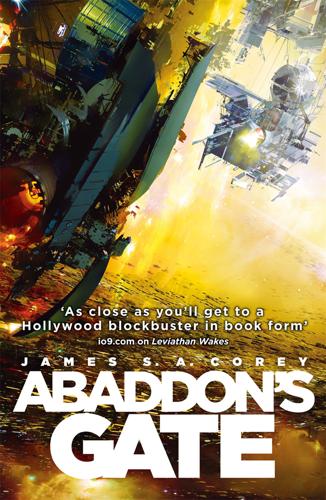
Abaddon's Gate
by
James S. A. Corey
Published 3 Jun 2013
The long, thin line of the keel elevator stretched along the body of the drum to shuttle personnel from engineering at one end to ops at the other. The secondary car, stored on the exterior, could hold a dozen people. It looked like a grain of salt. The soft curve was studded with turreted rail guns and the rough, angry extrusions of torpedo tubes. Once, she’d been the Nauvoo. A generation ship headed to the stars carrying a load of devout Mormons with only an engineered ecosystem and an unshakable faith in God’s grace to see them through. Now she was the Behemoth. The biggest, baddest weapons platform in the solar system. Four Donnager-class battleships would fit in her belly and not touch the walls.
…
Most ships built for travel between the planets were like massive buildings, one floor above another with the thrust of the Epstein drive at the bottom providing the feeling of weight for whole voyages apart from a few hours in the middle when the ship flipped around to change from acceleration to slowing down. But Epstein or not, no ship could afford the power requirements or the heat generated by accelerating forever. Plus, Einstein had a thing or two to say about trying to move mass at relativistic speeds. The Nauvoo had been a generation ship, its journey measured in light-years rather than light-minutes. The percentage of its life span it could afford to spend under thrust was tiny by comparison. The command and control at the top of the ship and the main engines and the associated parts of engineering at the bottom could almost have belonged to a standard craft connected by a pair of kilometers-long shafts, one for a keel elevator to move people and another that gave access to the skin of the drum.
…
They were doing a slow pan of the Behemoth’s hull when Alex whistled and pointed at a protrusion on the side. “Damn, boss, the Mormons are better armed than I remember. That’s a rail gun turret right there. And I’d bet a week’s desserts those things are torpedo tubes.” “I liked her better when she was a generation ship,” Holden replied. He called up combat ops and told the Rocinante to classify the new hull as the Behemoth-class dreadnought and add all the hardpoints and weapons to her threat profile. “That’s the kind of stealing only governments can get away with,” Amos said. “I guess the OPA is a real thing now.”
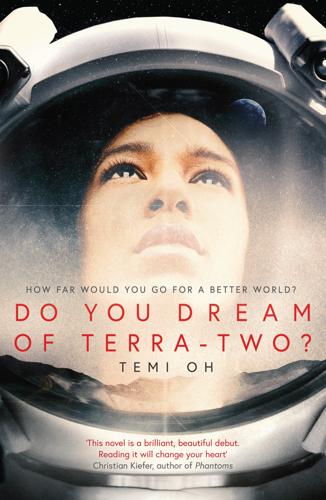
Do You Dream of Terra-Two?
by
Temi Oh
Published 15 Mar 2019
According to most accounts, this was when the race to Terra-Two really began. Both NASA and UKSA suspended their space shuttle programmes indefinitely and swore to send a crew to Terra-Two before 2020. Just before the 2008 financial crisis, China’s National Space Administration had launched a generation ship to the nearby star system. It was slated to reach Terra-Two by 2120. And although the mission was famously unsuccessful, it spurred engineers on every continent to pioneer the fastest way to leave the solar system. The UK’s programme would not have been possible without the continual funding of the Dalton estate, and corporations like it.
…
‘The furthest humans have travelled in our solar system.’ ‘Except for the Shēngmìng,’ Juno said. ‘Well, not really.’ Eliot took his hands off the control deck. ‘No one knows where that ship is. Or if it’s even still out there.’ ‘Of course it’s out there,’ Juno replied. Although the Chinese generation ship had gone radio silent around two years ago, Juno still imagined it floating like a shadow through the solar system, making its slow way to Terra-Two. The Chinese government had launched it four years ago – a bright vessel with 100 passengers, on a trip expected to last a century. Sometimes Juno wondered what it would be like to leave Earth behind, and – unlike the crew of the Damocles, who had access to Igor’s technology – to know for certain that only her grandchildren or great-grandchildren would ever set foot on Terra-Two.
…
She wasn’t sure she liked the thought of venturing out into the void with no role models, nothing to anchor herself. That evening, she ended up scouring the ship’s data bank on her personal computer, looking for files. She came across the Xiao Lin papers, articles published by the scientist on the Chinese generation ship. Xiao Lin had laid out her ideas about the importance of living in harmony on a closed system like the Shēngmìng. Fellowship and justice, she had written, came above all else. Juno was captivated by the idea. And by Xiao Lin, who seemed to embody a cold brilliance. She’d managed to distil ‘fellowship’ into a few simple rules of human behaviour, and Juno read and reread them so intently that she didn’t notice time passing.
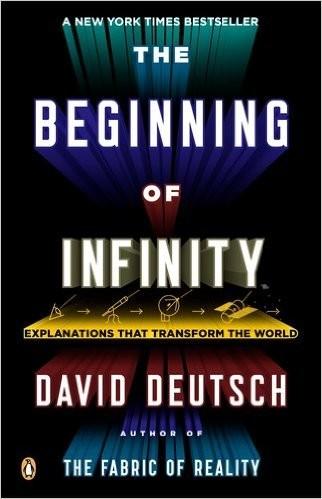
The Beginning of Infinity: Explanations That Transform the World
by
David Deutsch
Published 30 Jun 2011
For instance, the prediction that the seasons are in phase all over the world is a parochial error but not an anthropocentric one: it does not involve explaining seasons in terms of people. Another influential idea about the human condition is sometimes given the dramatic name Spaceship Earth. Imagine a ‘generation ship’ – a spaceship on a journey so long that many generations of passengers live out their lives in transit. This has been proposed as a means of colonizing other star systems. In the Spaceship Earth idea, that generation ship is a metaphor for the biosphere – the system of all living things on Earth and the regions they inhabit. Its passengers represent all humans on Earth. Outside the spaceship, the universe is implacably hostile, but the interior is a vastly complex life-support system, capable of providing everything that the passengers need to thrive.
…
These are the same rules that prevailed in the Great Rift Valley from whence we came, and have prevailed ever since. Oddly enough, that quixotic space station in our thought experiment is none other than the ‘generation ship’ in the Spaceship Earth metaphor – except that we have removed the unrealistic assumption that the inhabitants never improve it. Hence presumably they have long since solved the problem of how to avoid dying, and so ‘generations’ are no longer essential to the way their ship works. In any case, with hindsight, a generation ship was a poor choice for dramatizing the claim that the human condition is fragile and dependent on support from an unaltered biosphere, for that claim is contradicted by the very possibility of such a spaceship.
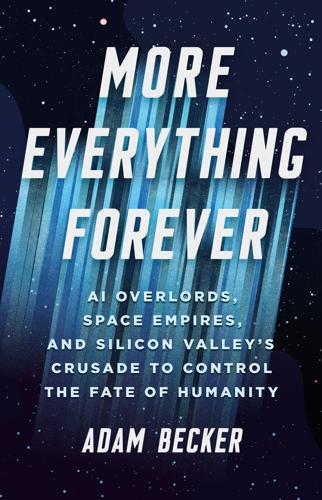
More Everything Forever: AI Overlords, Space Empires, and Silicon Valley's Crusade to Control the Fate of Humanity
by
Adam Becker
Published 14 Jun 2025
The astronauts who initially embarked on the journey would die before arriving, as would their children and grandchildren; their distant descendants would arrive at the destination. This sort of “generation ship” is a common feature of science fiction. But generation ships are ethically indefensible. The initial crew would be condemning whole generations of their own descendants to live and die in the confines of the ship, and the generation at the end of the journey would have to try to make a new life on a world they never asked to be sent to in the first place, one that might turn out to be less hospitable than it seemed at a distance. And that’s putting aside the practical matter of building a generation ship in the first place: a huge undertaking, requiring vast quantities of material.
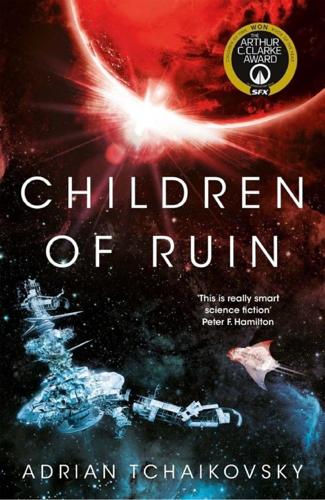
Children of Ruin
by
Adrian Tchaikovsky
Published 13 May 2019
The Gilgamesh’s architects had to start from scratch, hauling themselves from a second Stone Age. The Gilgamesh itself was ever a crude toy compared to the wonders of the Old Empire, but the pre-collapse Old Empire is the anchor Noah and his predecessors have built up from. The stars are too far away, and his people are not predisposed to think in terms of generation ships and cold sleep and a thousand years of travel. Noah wants results now, and because of the wealth of technological understanding he has inherited, he can do something about that. Six-eighths of his cerebral capacity, on all levels, are bent towards that one end. Octopus technological development is simultaneously the lone mad scientist and upon the shoulders of giants.
…
Just like his distant ancestors chafing against the close confines of their tanks, he thought, I need to escape. And Noah knew – or his Reach did – that the universe was vast, and that anywhere he might want to flee to was unimaginably far away. And, impatient to be gone, his Reach threw out such long-term plans as cold sleep and generation ships in favour of . . . This. Space is an ocean, in this sense. It has waves and currents, and while there are hard and absolute limits to the speeds that objects can move through space, such limits do not apply to space itself. When they test Noah’s device, it vanishes instantly. The octopus scientists are split, some hailing this as a success, some as a failure.
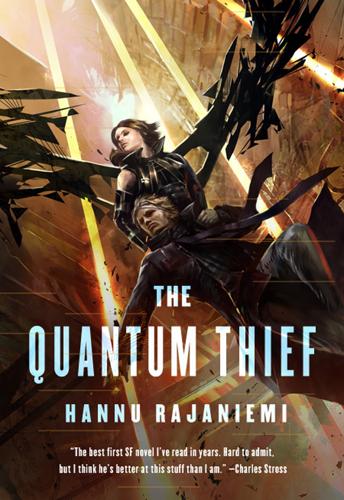
The Quantum Thief
by
Hannu Rajaniemi
Published 1 Jan 2010
And of course, I have an Archon running inside me now, locked inside my bones, in computational deep freeze. We are sitting in one of the cramped storage modules, spinning on a tether for gravity, while the ship repairs itself. But there is a sparkling river of spaceships all around us, scattered over thousands of cubic kilometres but magnified by Perhonen’s skin: overclocked fast zoku generation ships that dump waste heat madly, every day of a journey like a thousand years for them; whalelike calmships with green and miniature suns inside, Sobornost thoughtwisps everywhere like fireflies. ‘It’s quite simple, really – it’s all about neuroscience. Misdirected attention.’ Mieli ignores me.
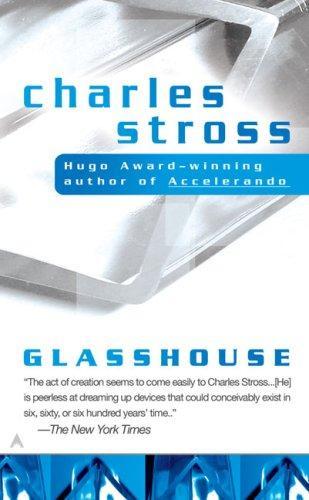
Glasshouse
by
Charles Stross
Published 14 Jun 2006
Her tone is relaxed but I see the little signs of tension, the wrinkles around her eyes. She knows why I used that name. "What do you want to do after this?" I grasp for the right words: "We're about to lock ourselves down in this little bubble-polity like something out of the stone age, a generation ship . . . we're not going to be getting out of here for gigasecs, tens of gigs, at a minimum! I mean, not unless we go into suspension afterward. And I thought you, you'd be wanting to escape, to get out and warn everybody off. Break YFH from the outside. Instead, well, we've come up with a case for pulling down the escape tunnel on top of ourselves.
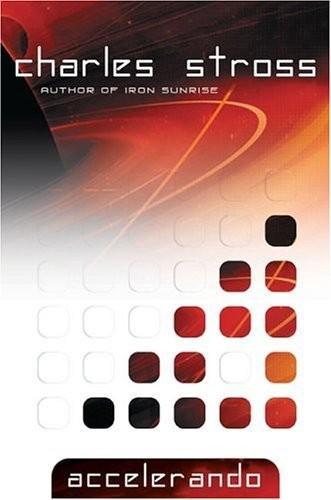
Accelerando
by
Stross, Charles
Published 22 Jan 2005
At the very least, it gives us a chance to live again, a long way out in deep time. Alternatively, it can be turned into a lifeboat. If we can't compete with our creations, at least we've got somewhere to flee, those of us who want to. I've got agents working on a comet, out in the Oort cloud – we could move the archive to it, turn it into a generation ship with room for billions of evacuees running much slower than real-time in archive space until we find a new world to settle." "Is not sounding good to me," Boris comments. He spares a worried glance for an oriental-looking woman who is watching their debate silently from the fringe. "Has it really gone that far?"
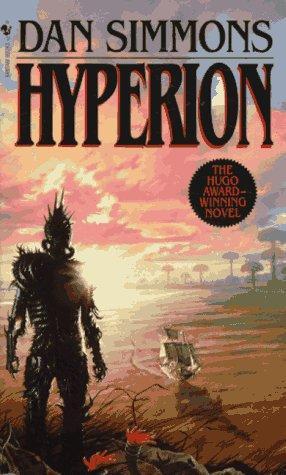
Hyperion
by
Dan Simmons
Published 15 Sep 1990
One might be tempted to describe the round faces of the Bikura as cherubic until, upon closer inspection, that impression of sweetness fades and is replaced by another interpretation – placid idiocy. As a priest, I have spent enough time on backward worlds to see the effects of an ancient genetic disorder variously called Down’s syndrome, mongolism, or generation-ship legacy. This, then, was the overall impression created by the sixty or so dark-robed little people who had approached me – I was being greeted by a silent, smiling band of bald, retarded children. I reminded myself that these were almost certainly the same group of ‘smiling children’ who had slit Tuk’s throat while he slept and left him to die like a butchered pig.
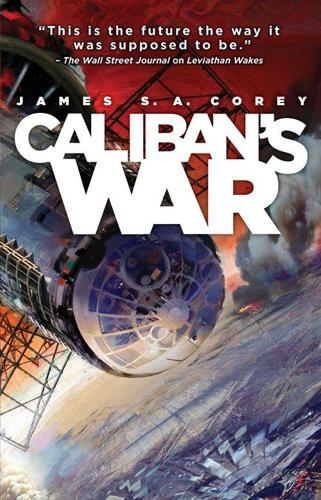
Caliban's War
by
James S. A. Corey
Published 6 Jun 2012
I think they’re talkin’ about running the poor bastard at something like eight g for a couple of months.” “All the way where?” Prax asked, doing a little napkin-back math in his head. “It would have to be outside the orbit of … anything.” “Yep, she’ll be going deep. They’re going after that Nauvoo.” “The generation ship that was supposed to knock Eros into the sun?” “That’s the one. They cut her engines when the plan went south, but she’s been cruisin’ on ever since. Wasn’t finished, so they can’t bring her around on remote. Instead, they’re buildin’ a retriever. Hope they manage too. The Nauvoo was an amazin’ piece of work.
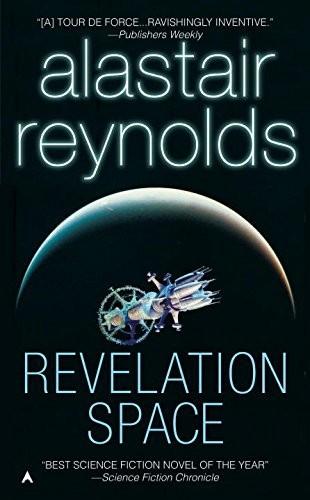
Revelation Space
by
Alastair Reynolds
Published 1 Jan 2000
She thought of Sylveste, somewhere in the ship now. 'Then Sajaki really did get what he wanted.' 'No,' Khouri said, guardedly. 'That's only what he thought he'd got. But the truth was a bit different.' Over the next hour she told Volyova everything that had happened since Sylveste had been brought back aboard the lighthugger. It was all general ship-knowledge; nothing that Sajaki would not expect her to tell Volyova. But all the while, Volyova reminded herself that she was being told events as filtered by Khouri's perception of things, which might not necessarily be complete, or even reliable. There were nuances of shipboard politics which would elude Khouri; would, indeed, elude anyone who had not been aboard for years.
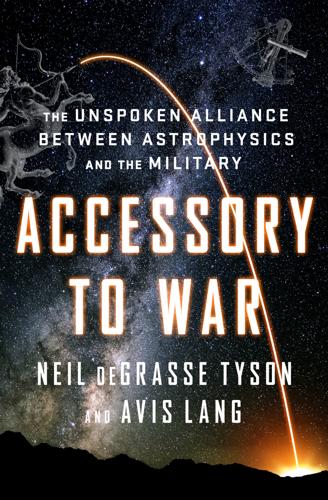
Accessory to War: The Unspoken Alliance Between Astrophysics and the Military
by
Neil Degrasse Tyson
and
Avis Lang
Published 10 Sep 2018
One British optical firm advertised its refracting telescope as having “been favoured with the Approbation of the best Judges in Theory, as well as those Gentlemen whose naval, or military Capacity, has made them more than ordinary conversant with the Use of it.”26 Today, writers of history sprinkle their accounts of bygone battles with references to a long-dead colonel, general, ship captain, or concerned citizen watching in alarm through a telescope as a forest of masts materializes on the horizon, or slowly pivoting a telescope across a landscape like a swiveling gun, or peering through a telescope and muttering, or decisively collapsing his telescope shut once he’s seen what he needed to see.
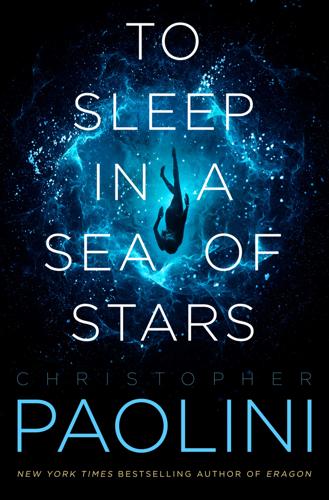
To Sleep in a Sea of Stars
by
Christopher Paolini
Published 14 Sep 2020
ADDENDUM APPENDIX I SPACETIME & FTL Excerpt from the Entropic Principia (Revised) … necessary to outline a brief overview of the fundamentals. Let this serve as a primer and quick reference guide for later, more serious studies. * * * FTL travel is the defining technology of our modern era. Without it, expansion beyond the Solar System would be impossible, barring centuries-long trips on generational ships or automated seed ships that would grow colonists in situ upon arrival. Even the most powerful fusion drives lack the delta-v to jet between the stars as we do now. Although long theorized, superluminal travel did not become a practical reality until Ilya Markov codified the unified field theory (UFT) in 2107.
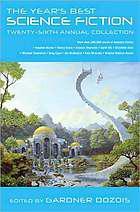
The Year's Best Science Fiction: Twenty-Sixth Annual Collection
by
Gardner Dozois
Published 23 Jun 2009
Despite a surprisingly sophisticated matter-anti-matter propulsion system, the Aeo Taea fleet was limited to no more than ten percent of light-speed, far below the threshold where time dilation became perceptible. The crossing to the Destination—Aeo Taea was a language naturally given to Portentous Capitalizations, Fast Man had discovered—could only be made by generation ship. The Aeo Taea had contrived to do it in just one generation. The strangely slow messages the Anpreen had picked up from the fleet were no fluke of space-time distortion. The voyagers’ bodies, their brains, their perceptions and metabolisms, had been in-vitro engineered to run at one-tenth hominiform normal.